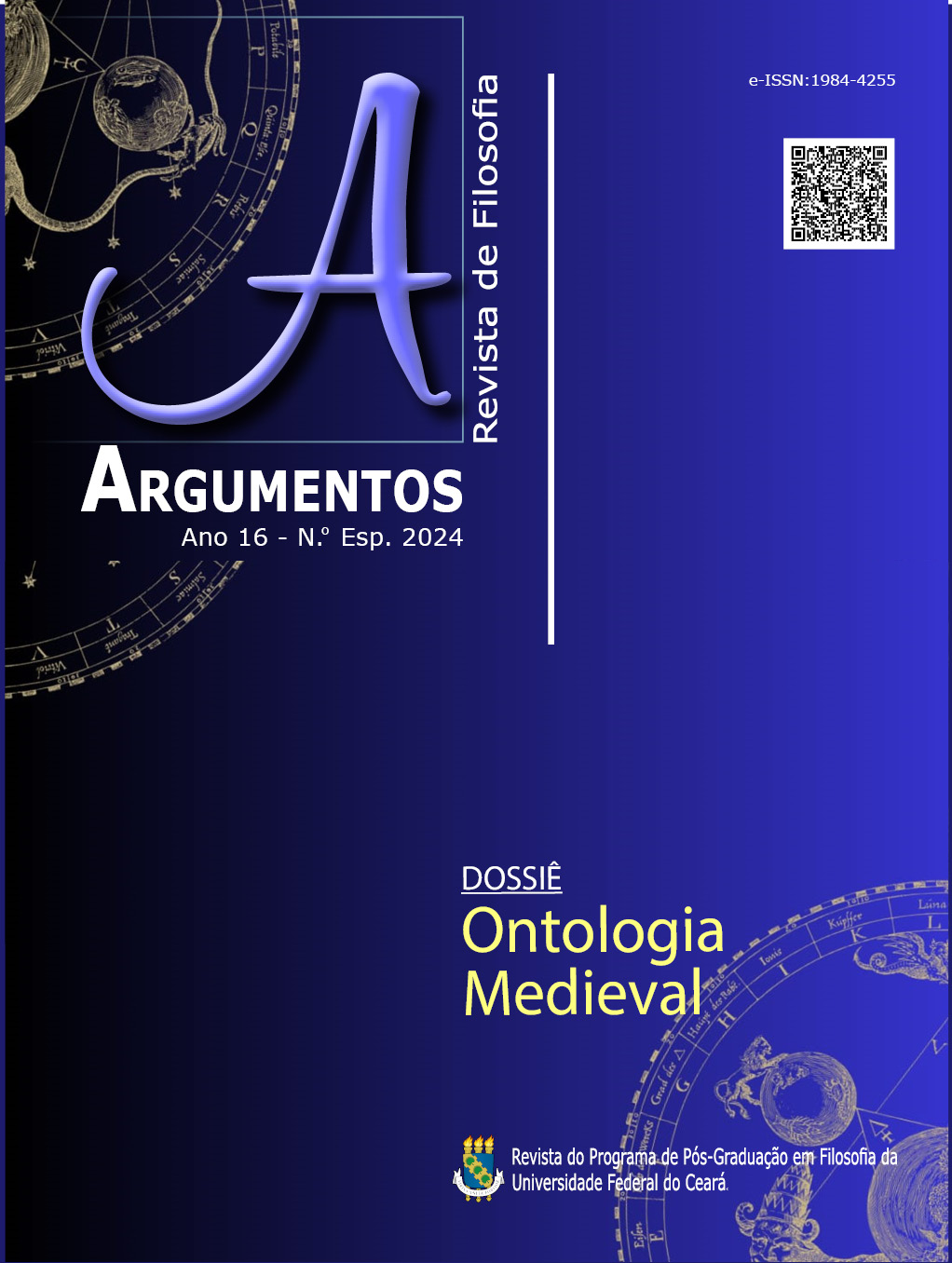On two ways to expand on the harm principle
DOI:
https://doi.org/10.36517/Argumentos.16.esp.94440Palavras-chave:
John Stuart Mill. Harm Principle. Public opinion. Liberalism.Resumo
In this article I survey the historical antecedents of what has been commonly referred to as John Stuart Mill´s Harm Principle and some of the ways in which the principle has been discussed in the work of recent analytic philosophers. Subsequently, in the article`s substantive core, I focus entirely on what Mill refers to as the “moral coercion of public opinion”. Here I address matters which I take to underexplored in the literature, namely some difficulties that arise for Mill´s treatment in connection with our ordinary notions concerning politeness and social avoidance. Though the problem of avoidance has been addressed by Dan Threet and John Dilulio, among others, I believe that my approach to the problems created by Mill`s take on politeness is entirely original with me. Considering the foregoing, I propose adding two supplementary clauses to the Harm Principle. I conclude by presenting a modern statement of said principle.
Downloads
Referências
CAPALDI, N. John Stuart Mill: a Biography. Cambridge: Cambridge University Press, 2004.
CONSTANT, B. Principles of Politics Applicable to All Governments. Trad. de Dennis O’ Keefe. Indianapolis: Liberty Fund, 2003.
DEMETRIOU, K. N.; LOIZIDES, A. John Stuart Mill: a British Socrates. Palgrave: Macmillan, 2013.
DILULIO, J. P. Completely free: the moral and political vision of John Stuart Mill. Princeton: Princeton University Press, 2022.
DWORKIN, G. “Paternalism”. The Monist v. 56, n. 1, 1972, p. 64-84.
FEINBERG, J. Harm to Others. Oxford: Oxford University Press, 1984.
FEINBERG, J. Harm to Self. Oxford: Oxford University Press, 1986.
FEINBERG, J. Harmless Wrongdoing. Oxford: Oxford University Press, 1988.
FEINBERG, J. Offense to Others. Oxford: Oxford University Press, 1985.
FOLLAND, A. The Harm Principle and the Nature of Harm. Utilitas, v. 34, 2022, p. 139-153.
HUMBOLDT, W. von. The limits of state action. Cambridge: Cambridge University Press, 1969.
LOCKE, J. Two Treatises of Government and a Letter Concerning Toleration. New Haven: Yale University Press, 2003.
MILL, J. S. Autobiography (1873). In: Collected Works of John Stuart Mill. v. 1. New York: Routledge, 2008.
MILL, J. S. “Civilization” (1836). In: Collected Works of John Stuart Mill. v. 18. New York: Routledge, 2014.
MILL, J. S. “Coleridge” (1840). In: Collected Works of John Stuart Mill. v. 10. New York: Routledge, 2014.
MILL, J. S. On Liberty. (1859). In: Collected Works of John Stuart Mill, v. 18. New York: Routledge, 2014.
MILL, J. S. “Perfectibility” (1829). In: Collected Works of John Stuart Mill. John M. Robson (Ed), v. 26. New York: Routledge, 2016.
MILL, J. S. The Principles of Political Economy (1848). In: Collected Works of John Stuart Mill. v. 3. New York: Routledge, 2009.
MILTON, J. Areopagitica and other writings. London: Penguin Classics, 2016.
RILEY, J. Mill’s on Liberty. New York: Routledge, 1998.
RILEY, J. Mill’s on Liberty. 2. ed. New York: Routledge, 2015.
THREET, D. Mill’s Social Pressure Puzzle. Social Theory and Press, v. 44, n. 4, 2018, p. 539-565.
TOCQUEVILLE, A. de. Democracy in America. Trad. Harvey Mansfield e Delba Winthrop. Chicago: Chicago University Press, 2000.
TURNER, P. N. Harm and Mill’s Harm Principle, Ethics, v. 124, n. 2, 2014, p. 299-326.
Downloads
Publicado
Como Citar
Edição
Seção
Licença
Copyright (c) 2024 Rodrigo Jungmann de Castro

Este trabalho está licenciado sob uma licença Creative Commons Attribution 4.0 International License.
Autores que publicam nesta revista concordam com os seguintes termos (SOBRE COPYRIGHT E POLÍTICA DE ACESSO LIVRE):
1. Autores mantém OS DIREITOS AUTORAIS concedidos à revista OU Direito de Primeira Publicação, com o trabalho simultaneamente licenciado à Atribuição de Licença Creative Commons (CC BY) que permite o compartilhamento dos trabalhos com reconhecimento de autoria e publicação inicial nesta revista.
2. Autores têm permissão para aceitar contratos, distribuição não-exclusiva da versão do trabalho publicada nesta revista (por exemplo: publicar no repositório institucional ou como um capítulo do livro), com reconhecimento de autoria e publicação inicial nesta revista.
3. Autores têm permissão e são estimulados a publicar e distribuir seu trabalho on-line (por exemplo: em repositórios institucionais ou em sua página pessoal) mesmo durante o processo editorial, haja visto que isso pode aumentar o impacto e citação do trabalho publicado.




.jpg)










._._3.png)
1.jpg)
._._._.png)
